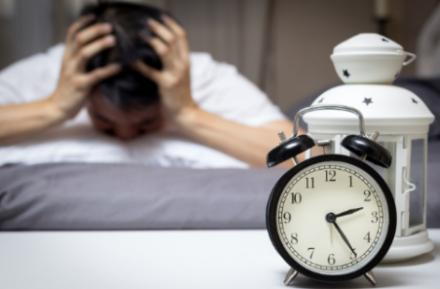How Sleep Deprivation Affects Your Mental Well-Being
posted: Mar. 29, 2022.

Insomnia, or the inability to sleep, affects everyone at one time or another. Sometimes, it’s brought on by stressful situations at work or at home; other times, it’s the result of worries that people can’t resolve, or at least set aside long enough to fall asleep.
For some individuals, their lack of sleep isn’t the result of insomnia but rather the demands of a busy life. They have more to accomplish than they can comfortably fit into their day; consequently, they regularly go to bed late and get up early, often getting by on less sleep than they really require to be mentally and physically healthy.
Whether it’s the result of insomnia or an active decision to sacrifice sleep, living in a prolonged state of sleep deprivation can have numerous effects on an individual’s mental well-being.
Stress
Lack of sleep can lead to changes in mood, such as irritability, anger, and frustration. As a result, relatively minor problems or annoyances brought by daily life become much harder to deal with for an individual who’s sleep-deprived.
In addition to making it more difficult for an individual to deal with stress, the sleep deprivation itself may become a source of stress. The individual worries about being able to fall asleep or remain asleep, and that raises their level of stress. That elevated stress, in turn, makes it more likely that sleep will continue to elude them.
Depression
Sleep problems, including insomnia, have long been recognized symptoms of depression. However, researchers have recently put forth the idea that sleep deprivation may actually cause depression. Published in the Journal of Affective Disorders, analysis of multiple studies indicates that individuals experiencing insomnia were twice as likely to later develop depression, as compared to people not experiencing insomnia.
Anxiety
There is evidence that an individual suffering with sleep disorders has an increased risk for developing anxiety disorders. This is especially true if the underlying causes of the sleep disorders are left unaddressed for a long period of time. Sleep deprivation and anxiety can form a vicious cycle, each component feeding and exacerbating the other.
Managing their anxiety can be made significantly more challenging for people exhausted by an ongoing lack of sufficient, quality sleep. This sleep deprivation can aggravate symptoms of anxiety disorders, such as restlessness, lack of concentration, and persistent, excessive, and irrational fear.
It’s important to note that people with no diagnosed mental health issues can still feel the mental effects of sleep deprivation – even if it’s not a persistent issue. A study published in the Journal of Behavior Therapy and Experimental Psychiatry found that even short-term sleep deprivation in healthy adults resulted in elevated distress and anxiety levels.
Conclusion
Sleep deprivation can have profound implications for those individuals living with mental health issues. Not only do they have to contend with the problem of the sleep deprivation itself but also with the way it can intensify and magnify the symptoms of their existing disorders, making management of those disorders even more challenging.
If you are struggling with anxiety, depression and feelings of overwhelm reach out and call RSL Counseling and Coaching at 732 589-1780 schedule an appointment and start feeling better.